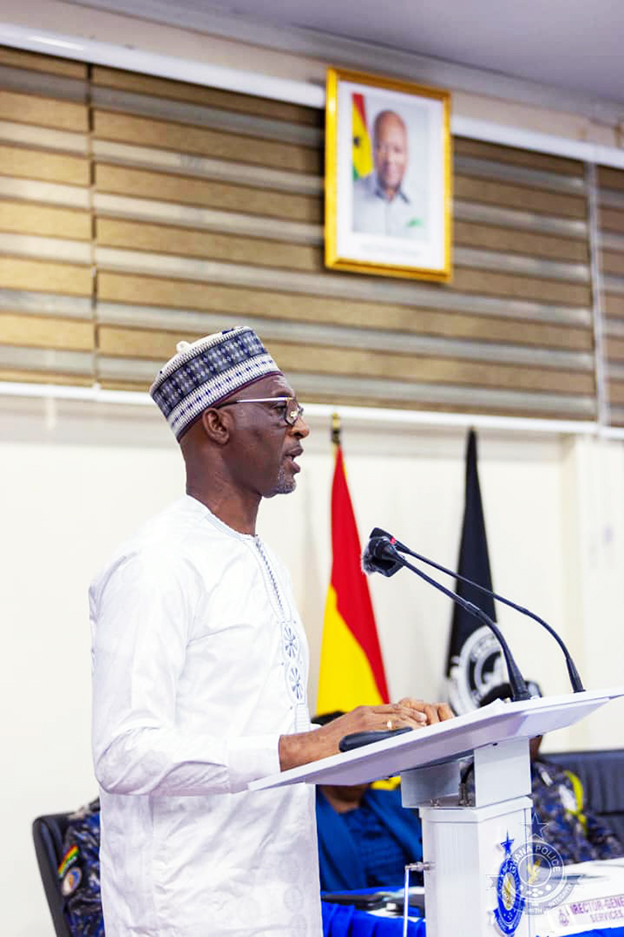Minister of Interior Muntaka Mohammed-Mubarak has unveiled contingency measures that place a firm numerical cap on screening activities and introduce logistical safeguards.
In blunt terms, the Minister declared: “We don’t want any centre to try to screen more than 1,000 a day.”
He continued: “We would rather prefer to use 10 days in doing a screening than to say that you want to finish it in two days, and therefore try to create a problem.”
The new regime being instituted includes:
• Each recruitment centre will be limited to 500–1,000 candidates per day, regardless of size or capacity, to avoid overcrowding and the associated risks of stampede, disease transmission and chaos.
• Multiple entry gates, clearly designated screening tables and time-slots will be used to manage flow. Even large complexes with 40 gates must adhere to the cap.
• Applicants will be more comfortable: waiting areas with chairs, canopy cover, water distribution (with the partnership of the Ghana Prison Service) and shade will be provided so that candidates are not simply herded and left standing outdoors.
• Screening days for different services will be deliberately staggered. For example, in one region the police may screen 3,000, prisons 500, immigration 300, others 200 thus avoiding a mega-centre handling all services in a crush.
He rejected the idea that Ghana could simply open its recruitment portals permanently to eliminate back-log.
“There’s no way they do it that way, where you do it all year round,” he said, arguing that training capacity, established posts and resources set hard limits.
Also addressing portal operations, the Minister admitted that although the total number of recruits to be absorbed is unknown at the outset, the application window remains open beyond the training target to allow for attrition and filtering through medicals, physical fitness and body-selection. “I may give 30,000, the scrutiny may show only 8,000 qualify,” he explained.
The heavy focus on screening numbers and flow-control reflects a recognition that the El-Wak tragedy was at least partly tied to uncontrolled crowds, weak logistics and inadequate facilities. While this overhaul is welcome, critics may ask how effectively the reforms will be implemented across all 16 regions and whether the timelines and resources match the ambition.









